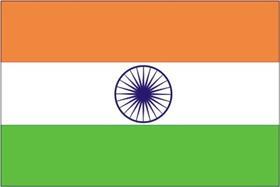
India's Supreme Court imposed a two-month countrywide ban on endosulfan on Friday and ordered an expert report within eight weeks on how the pesticide affects people and the environment, reports the Associated Press (AP).
The court acted on a petition filed by a political group from the southern state of Kerala, citing an increase in deaths and birth deformities in the state's Kasagorde district where endosulfan has been aerially sprayed cashew crops for the last 20 years.
Chief Justice Sarosh Homi Kapadia ordered the government to convene an expert panel to study endosulfan and recommend whether it should be banned entirely or phased out.
Indian farmers are opposed to a ban on endosulfan, which they say is a cheap, readily available pesticide.
At a meeting in Geneva last month, representatives of 127 countries agreed to add endosulfan to the UN's list of pollutants and set a 2012 deadline to end the use of the pesticide.
But India, one of the world's biggest users, negotiated an 11-year phase-out period to give its scientists time to develop safer alternatives.
However, the court said it did not want further damage to people or the environment from continued use of the pesticide.
But the court said if the expert committee concluded endosulfan was not hazardous, the ban would be lifted.
The US, EU and Australia have already banned endosulfan, which is widely understood to cause nerve damage.



